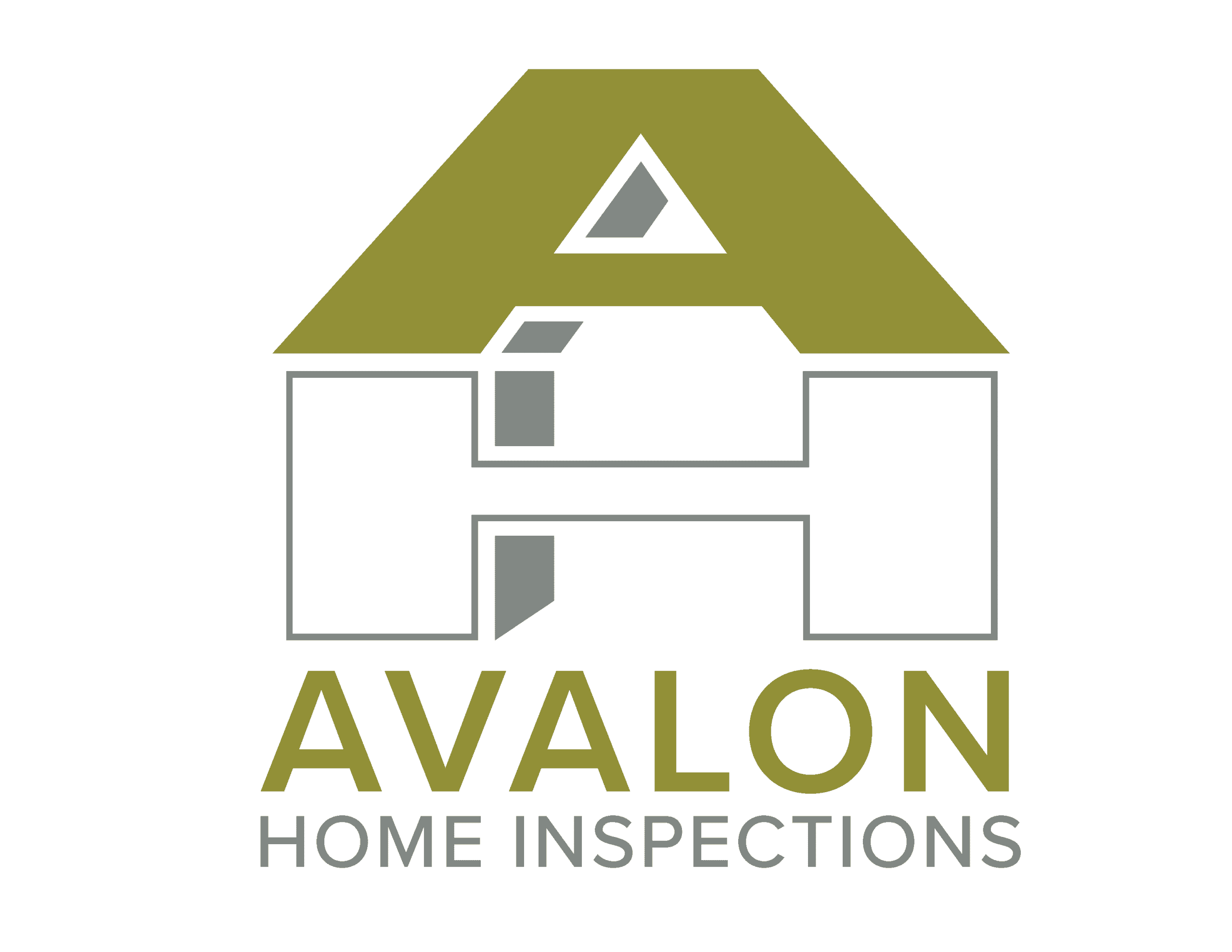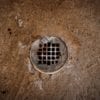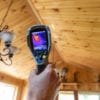
Buying a home brings a lot of joy but also brings with it some possible problems that need fixing. Before signing on the dotted line to purchase the home, think about a sewer scope. What is a sewer scope? An inspector uses a video camera to look inside the sewer lines that run from the home to the main sewer line, septic, or HOA tap line. You may be thinking that paying money for an inspection is costing you more, but just like a home inspection, a sewer scope inspection (or sewer line inspection) is highly recommended.
Let’s take a look at why the sewer scope is important, why you might need one, length and cost of the inspection, what happens during a sewer scope inspection, and when to contact a professional.
Why the Sewer Scope Inspection is Important
As mentioned above, the sewer scope takes a look at the sewer lines and checks for any blockages, broken sewer pipes, or other issues that can’t be seen without digging up the yard. It is important to have this inspection done before signing the contract for the home in case replacement is needed. You don’t want to be the one stuck footing the bill if it is the seller’s responsibility.
Additionally, homes built between 1945 and 1972 could have Orangeburg pipes, also known as black pipes. These pipes are made of hot pitch and wood pulp. Unfortunately, homes 30 years old or older are susceptible to water leaks and many lenders won’t approve a loan unless an inspection is done. Furthermore, homes built before the 1970s might have cast-iron pipes. These pipes are known to cause structural issues so a sewer scope inspection is very important.
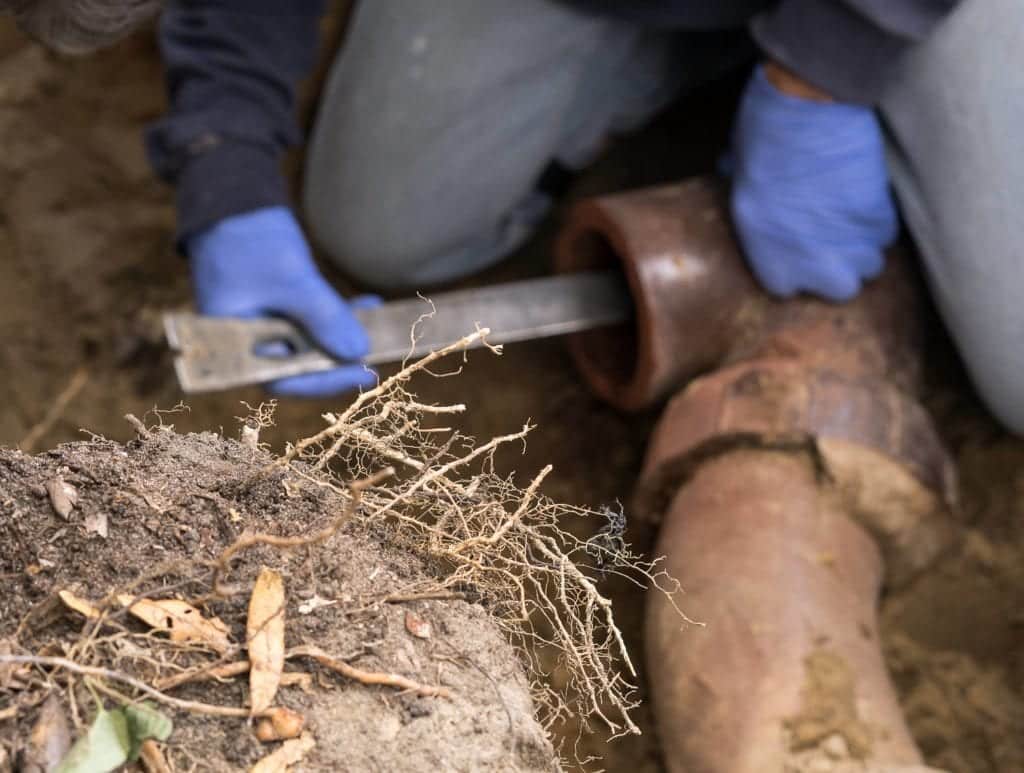
Why You Might Need a Sewer Scope Inspection
Tree Roots
There are many things that can cause issues in the sewer. One of those is root intrusion through the sewer line. If you have large trees in the area, they can cause issues in the sewer line. The sewer line carries water through the pipes and if there is a small crack, a root will find it. The root will welcome the water and grow through the line. This may take 20 years to happen or less, and unfortunately, it will cause a blockage in the line.
Clay or Concrete Pipes
Older homes often have pipes that are clay or concrete. Just like with anything, over time, they crack. These materials, more than others, will have issues or the pipes collapse. Another problem with broken lines is that they can allow animals and insects into them and then they enter the home.

Lush Patches of Grass or Damp Spots
If you noticed some of the grass is really green and plentiful, this can indicate a water leak underground. If there are parts in your lawn that are damp and sink into the grass, they may be indicators there is a problem with the sewer line. The good news is that a professional can dig in that area to see if that is where the issue is. However, he/she may order a larger inspection to see if there are more spots.
Backflow Into the Home
Backflow into the home is dangerous and harmful. If this is what you are seeing, contact a professional to come out to the home. Also, let members of the household know not to use the toilets or any sinks until the professional figures out what is wrong.

Contaminants in the Water Supply
Picture yourself running the sink water to brush your teeth and there is guck coming out, the water smells, or is discolored. Stop using the water right away and use bottled water. Call a professional that tests water to find out of it is safe to drink. If the water is cloudy, it could be several things so you can do this:
- Use or install a good water filtration system
- Have the water tested
- Use a water system
- Call a professional for a diagnosis
Settling of the Ground
When the ground settles, the line will continue to sink into the ground. This can also happen because of ground shifting from earthquakes, excavations, and groundwater tables.
Other Indicators There Are Sewer Issues
One of the indicators that there are sewer issues is a foul odor coming from your sink or drains. Do you have a gurgling noise in your sink or toilet and the water smells? You may have a sewer issue. However, before you assume that is the case (which is very expensive), try this method below to see if there is a clog.
1.Use ½ cup of baking soda and ½ cup of distilled white vinegar.
2.Pour these in the drain.
3.Put a stopper over the concoction and keep it there for 30 minutes while a foam forms.
4.Once 30 minutes is up, take the stopper out and use a plunger.
5.Create a seal with the plunger and move it up and down several times to try to get the clog out.
6.Then, run warm water in the drain for a couple of minutes.
7.Repeat the steps of the plunger and the water if the clog remains.
If this works and the clog and smell are gone, awesome! If not, contact a professional to see if it is a larger issue.
Length of Sewer Scope Inspection and Cost
The inspection is about 1 hour and costs about $150-$350. A much smaller price than the thousands of dollars it can cost if issues are found later.
What Happens in a Sewer Scope Inspection
This is a service that is in addition to the home inspection. Ask your home inspector if he/she does sewer scopes as well. Often, they can be done on the same day, if schedules allow.
1. The inspector notifies the homeowner of when the sewer scope will take place and also the practices and procedures. What are these? Well, inspectors will request to access the clean-out area and will go over all of the do’s and don’ts of the home.
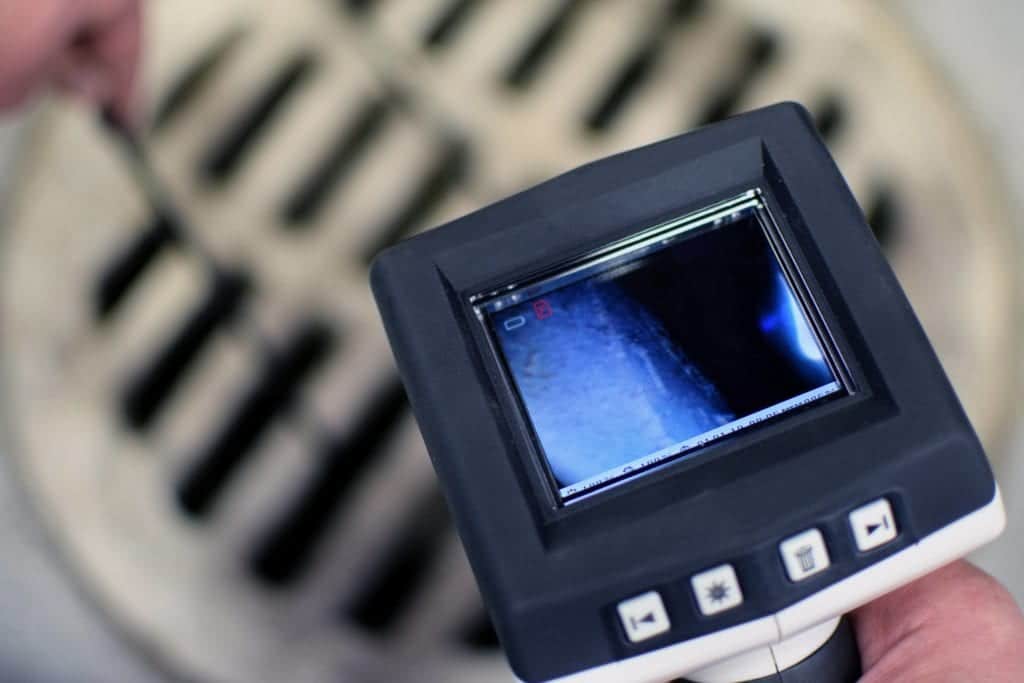
On the Day of the Inspection
2. The inspector will tell you not to run any water in the home while he/she is conducting the inspection. This includes dishwasher, washing machine, toilets, sinks, bathtubs and showers, outdoor faucets etc. However, the inspector will run the water in certain areas to flush out the system and to allow the camera he/she is using to float through the sewer taking pictures.
3. You may see the inspector put drop cloths down on the grass or soil and that is to keep the contaminants of the ground out of the sewer line.
4. The camera the inspector uses will take pictures as it goes through the sewer drains and the inspector will go over with you the findings with you in a report that day or a few days later (depending on what the company does.) This camera allows the inspector to find out how deep the issue is and the size of it. Instead of digging up the whole yard, they can often dig just a small space to make the repair.
If you are the possible buyer of the home that was scoped, you will know what is wrong (if anything) with the pipes and then negotiate with the seller’s realtor. Since this is an issue that affects the health of the people in the home, the seller should fix it. However, unless there is a law in the state that says it must be fixed, the seller can say no and then you need to find out the cost to fix the issue and whether to counteroffer or walk away after the inspection.
When to Contact a Professional
Contact a professional if you find any of the indicators above. A diagnosis and recommendation can be done. There are home inspectors who are trained to also do sewer scope inspections and that would be a great person to contact. Don’t let issues go too long, you may be playing with your family’s health and want to have peace of mind.
Conclusion
The home is the largest purchase you will make and you want to make sure it is in good shape. Hiring a home inspector to do the home inspection and the sewer scope inspection is a great idea. There are a lot of expenses that come with purchasing a home, but you want to find out the problems now instead of later. We conduct home inspections and sewer scope inspections in McDonough, Georgia. Think you might need our services? Leave us a comment below!
